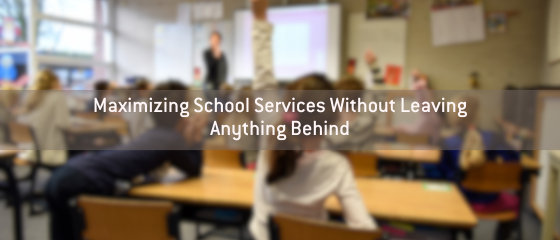Maximizing School Services Without Leaving Anything Behind

Parents have the right to choose between a public or private education for their child. This can be a difficult decision, especially for those with children who have special learning needs. Parents of students with disabilities should know what is at stake.
Federal law entitles eligible students with disabilities to a Free and Appropriate Education. This includes all services needed to address individual weaknesses that adversely affect learning. This may involve services through an Individualized Education Program (IEP) such as specialized instruction, therapies, nursing, psychoeducational evaluations, adaptive equipment, assistive technology, summer programming, transportation, and transition planning. Depending on the specific IEP, public school services can be available through age 21. However, private schools, including microschools and homeschools, are often not required to offer these same services. It is important for families to be aware of the resources available in the school system they choose and if there are costs.
Additionally, students with special needs require individualized instruction from qualified professionals who hold credentials in their specific area of practice. Members of a child’s IEP team should be equipped with the knowledge and experience in utilizing various instructional methods and identifying practical solutions that lead to meaningful academic gains. When a family chooses alternative schooling options, their right to this level of expertise is not guaranteed.
Federal law also entitles eligible students with disabilities to an education in the Least Restrictive Environment. This means students have the right to an appropriate learning program free of cost that is as close as possible to home and based on individualized needs. Although a small class in a private program can be appealing, it is important to remember students with disabilities have a right to a learning environment that meets their needs through the IEP process. Many times, a smaller class within a larger school system may have more resources available for students with disabilities.
If a family is facing challenges, they may want to consider discussing the following with an IEP team before opting out of a Free and Appropriate Education in the Least Restrictive Environment:
- What additional placement options are available through the IEP to meet the student’s specific needs?
- How can daily schedules be modified to best meet the complex needs of the student?
- Is a home instruction program through the IEP appropriate and what services would be included based on the student’s specific needs?
- If a student transitions to a private school, would any public education services continue to be available to the child?
Do you have a client or loved one who needs help finding solutions to these types of questions? Contact your National Care Advisors representative today or email us at info@nationalcareadvisors.com to learn more!
